United States President Barack Obama wrapped up his four-day visit to Africa on Tuesday July 28 with a rousing address to the African Union, at its headquarters in Addis Ababa, Ethiopia. Calling for the empowerment of African youth and women, for an end to the “cancer of corruption” and greater economic ties between Africa and America, Obama told the 54-nation body that “It is long past time to put aside old stereotypes of an Africa forever mired in poverty and conflict.”
The African Union was established in 2001 to achieve greater unity between African countries and a better life for African people. Over the past decade it has gained strength and respect in the international arena as it wields its political and military tools to solve thorny African problems, from civil conflict to terrorism and obstacles to trade. By becoming the first U.S. leader to address the A.U., Obama ensured that his praise, his exhortations to do better and his promise of partnership reached every corner of the continent, on what is likely to be his last visit to the region as President.
Welcomed by the African Union’s first chairwoman, Dr. Nkosazana Dlamini-Zuma, who introduced him as the President of the United States of America, the first to address the A.U., and “one of our own,” Obama took the podium to sustained applause, cheers and whistles. In a wide-ranging speech that touched on his African roots, Obama celebrated the continent’s gains, noting that Africa has one of the fastest growing economies in the world, with a middle class projected to grow to more than one billion consumers. “With hundreds of millions of mobile phones and surging access to the internet, Africans have the potential to leapfrog old technologies into new prosperity,” he said. But to continue on that trajectory, Obama warned, Africa “can’t let old traditions stand in the way.”
He called on African governments to maintain economic gains by improving democracy, protecting human rights and ensuring freedom of the press, singling out his host, the Ethiopian government, in particular for its crackdown on journalists and opposition leaders. “Democracy is not just formal elections,” Obama said to resounding applause. “When journalists are put behind bars for doing their jobs, or activists are threatened as governments crack down on civil society, then you may have democracy in name, but not in substance.”
See Scenes From Obama's Africa Trip
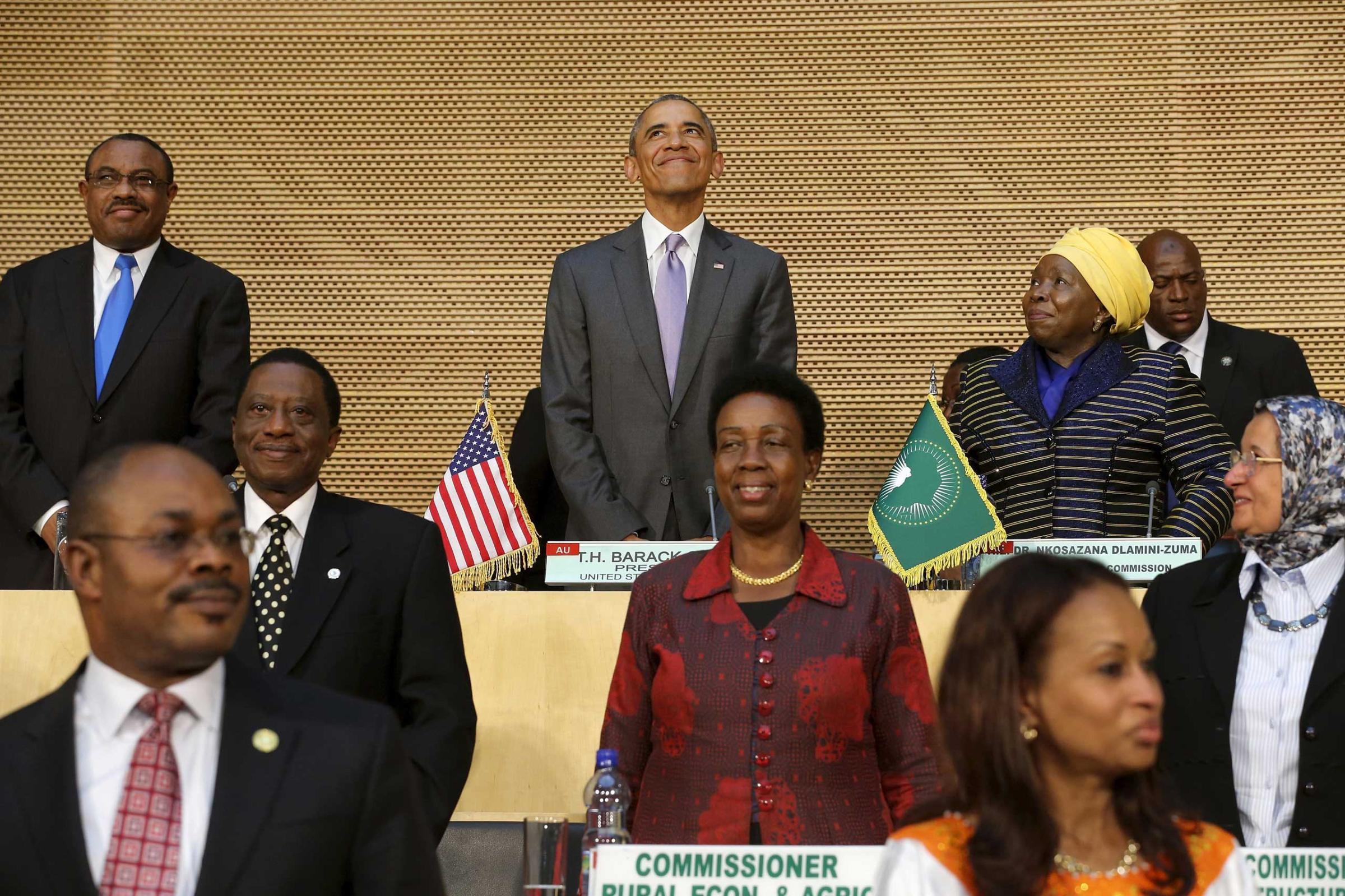
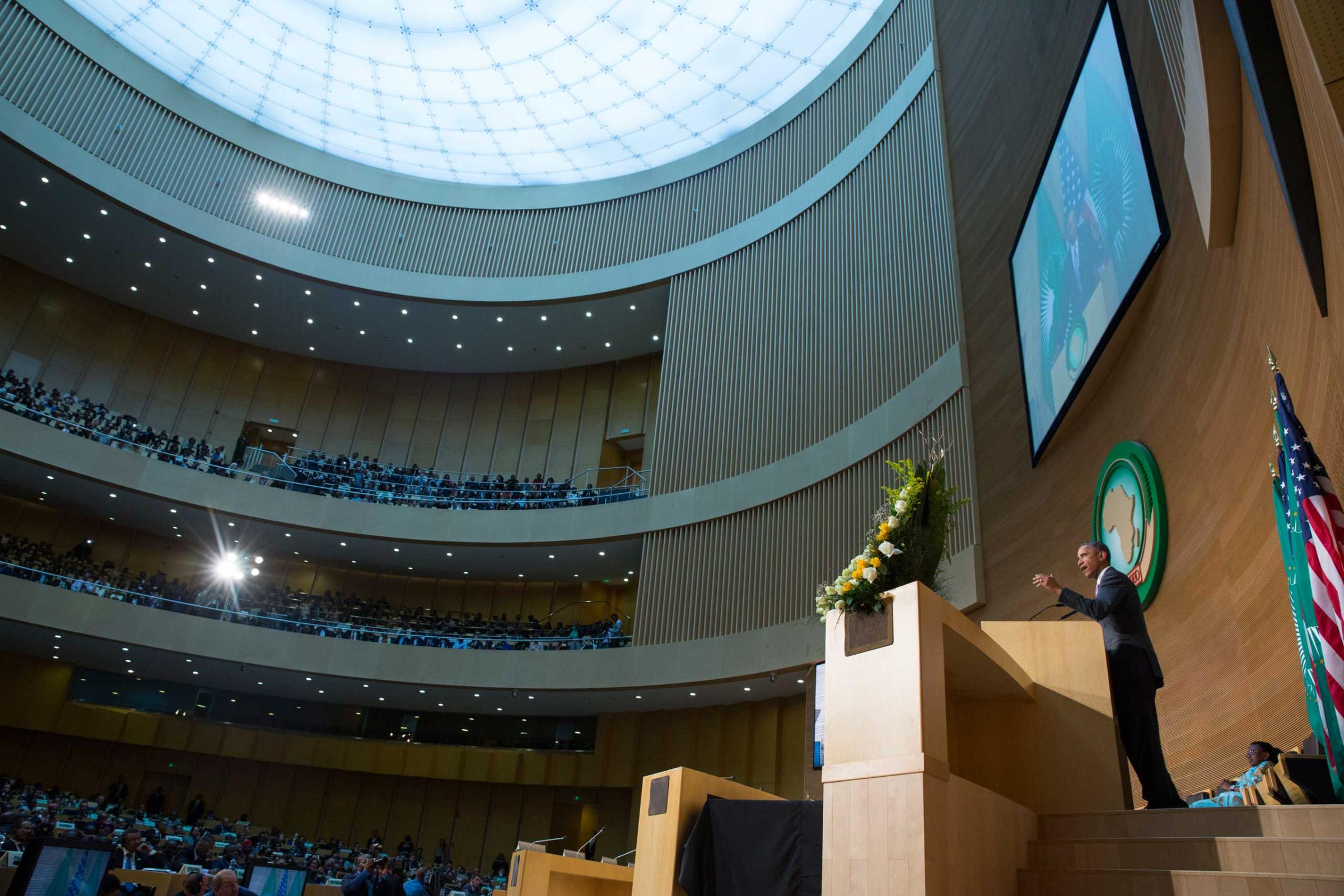
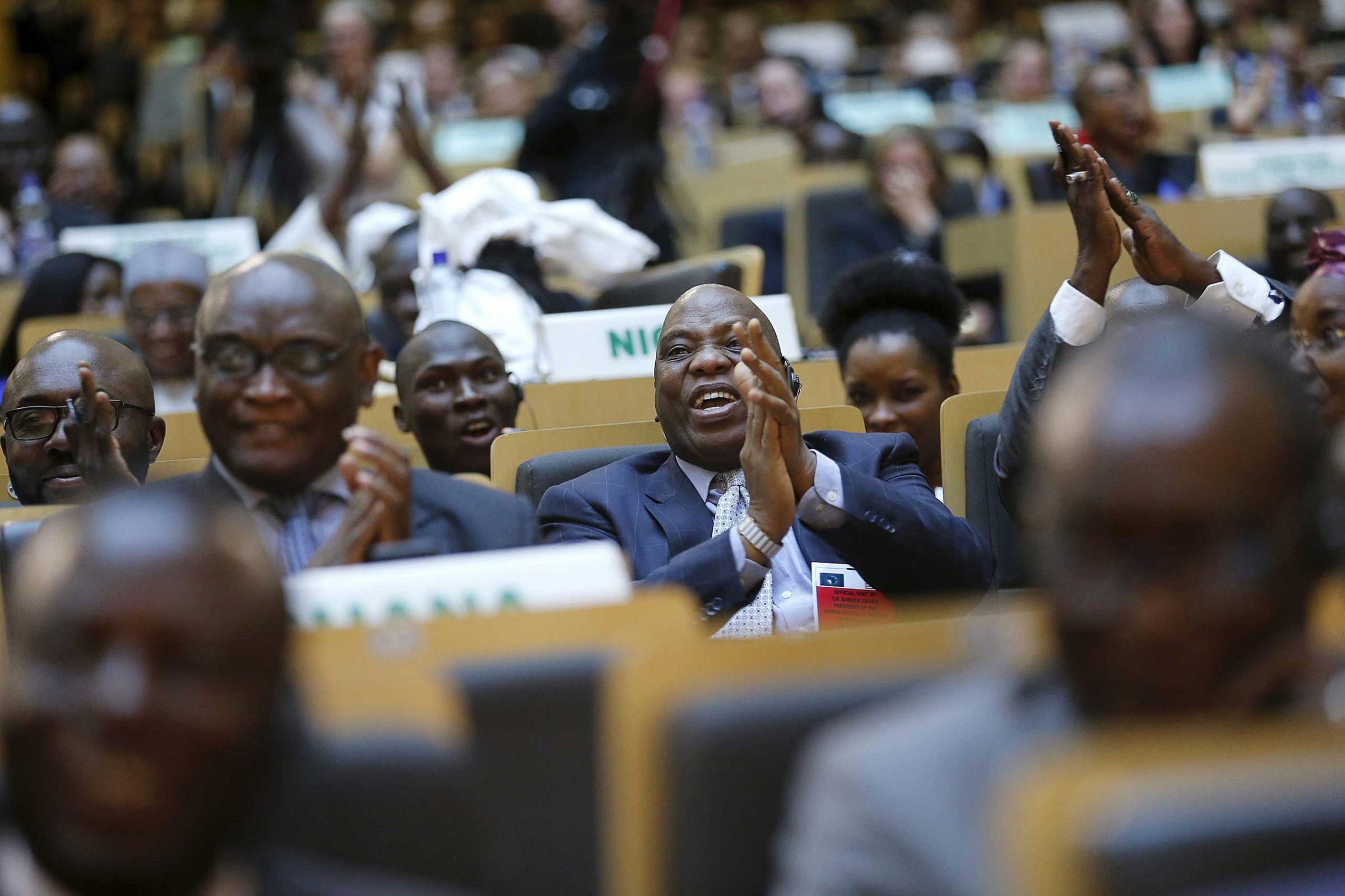
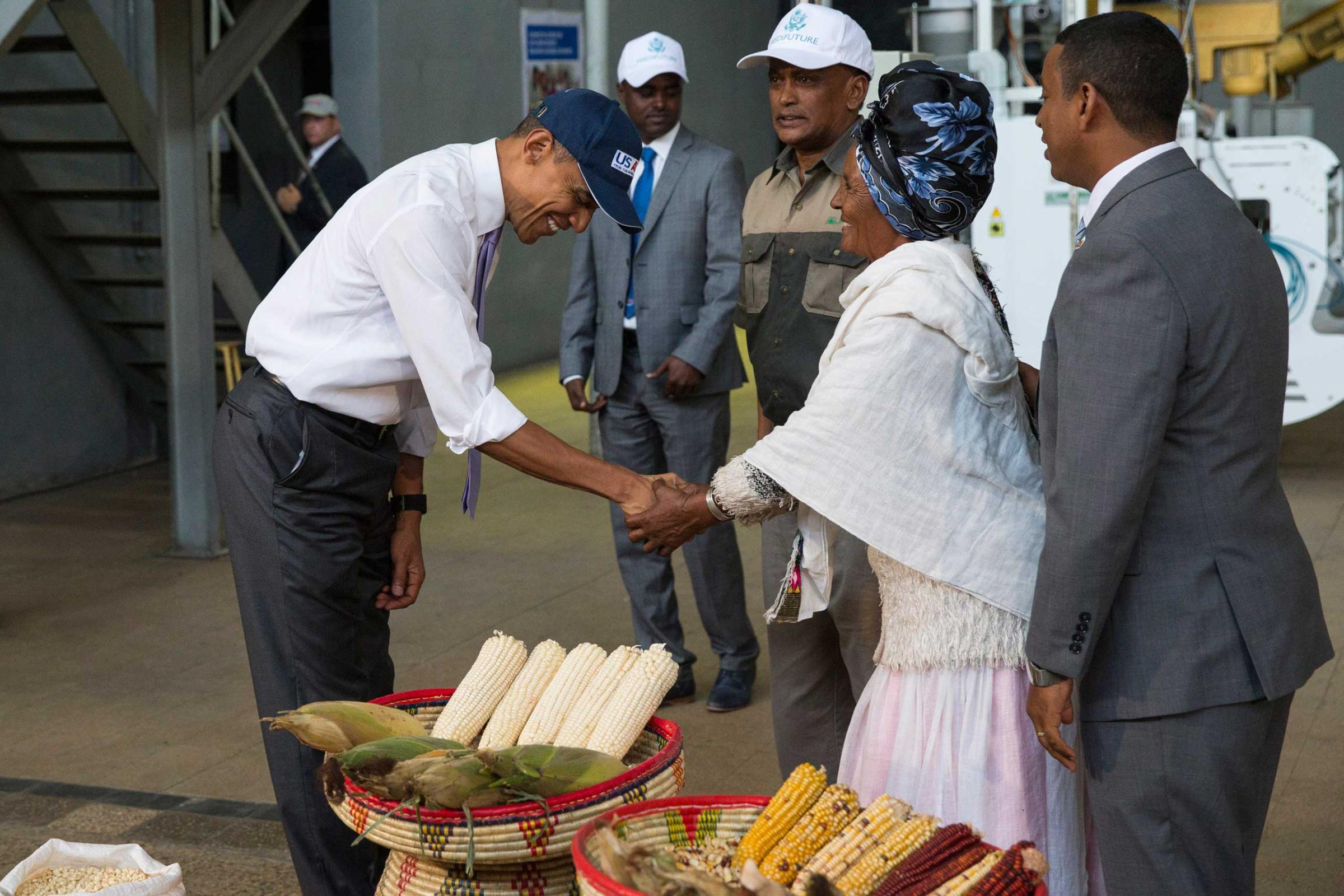
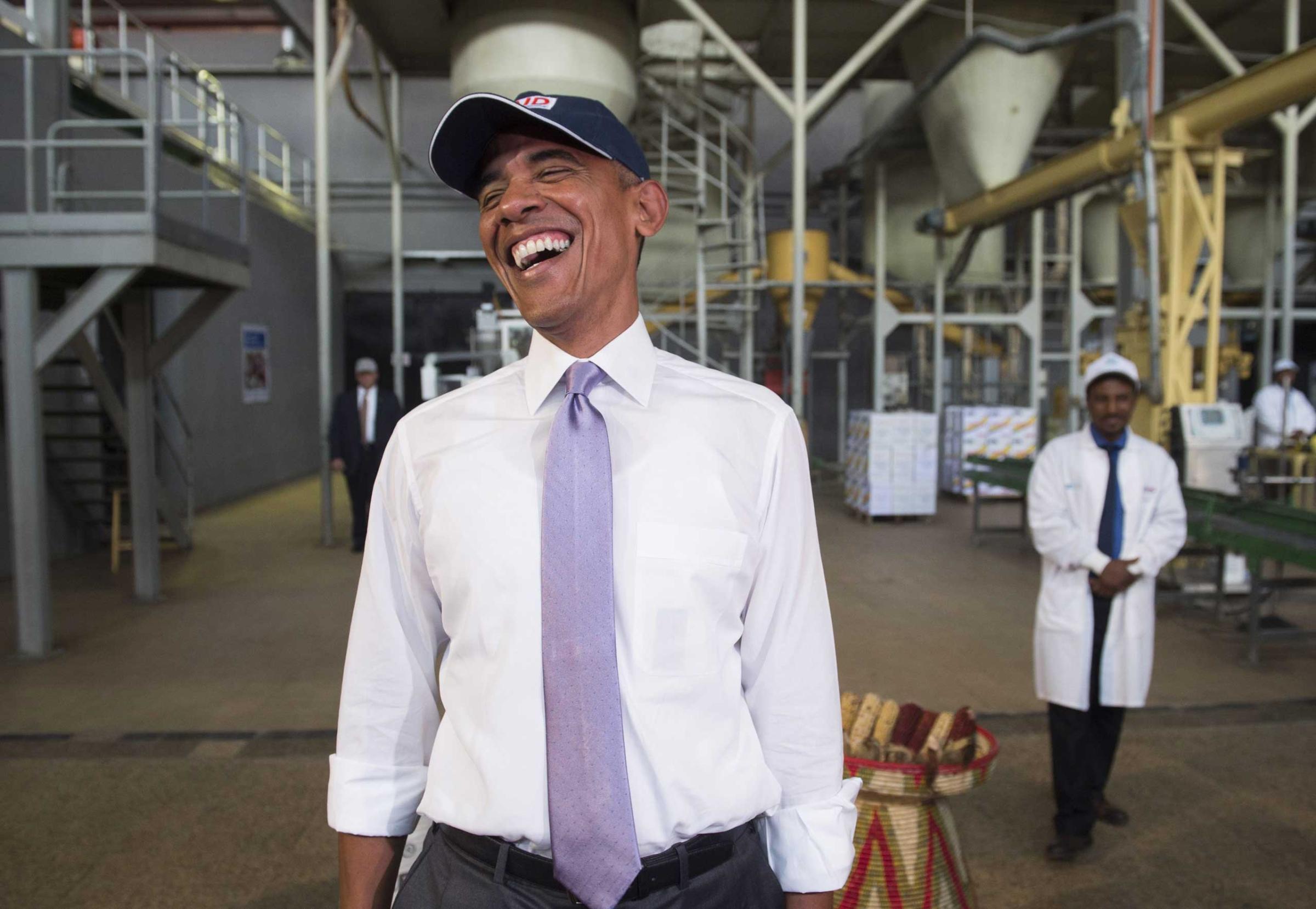
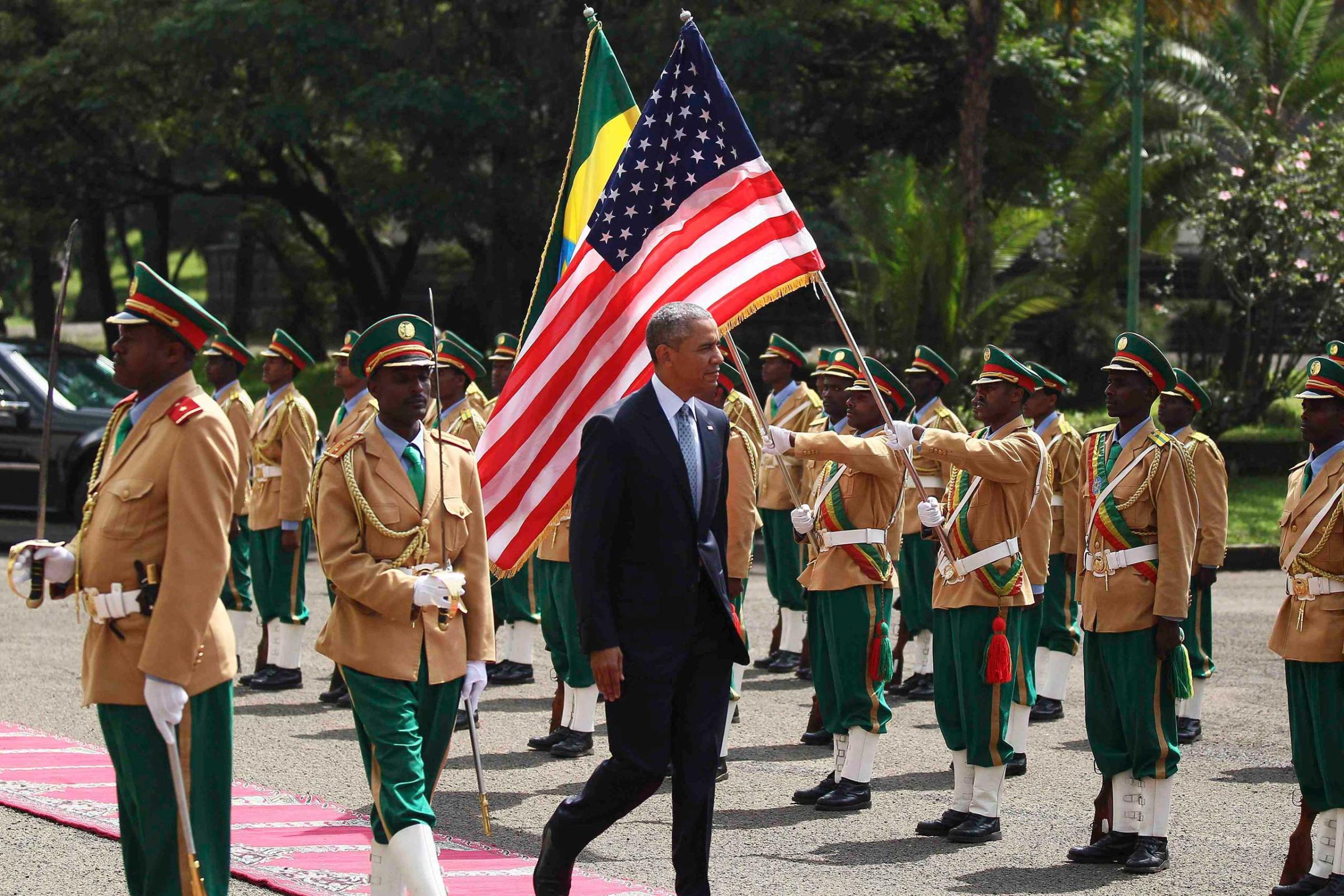
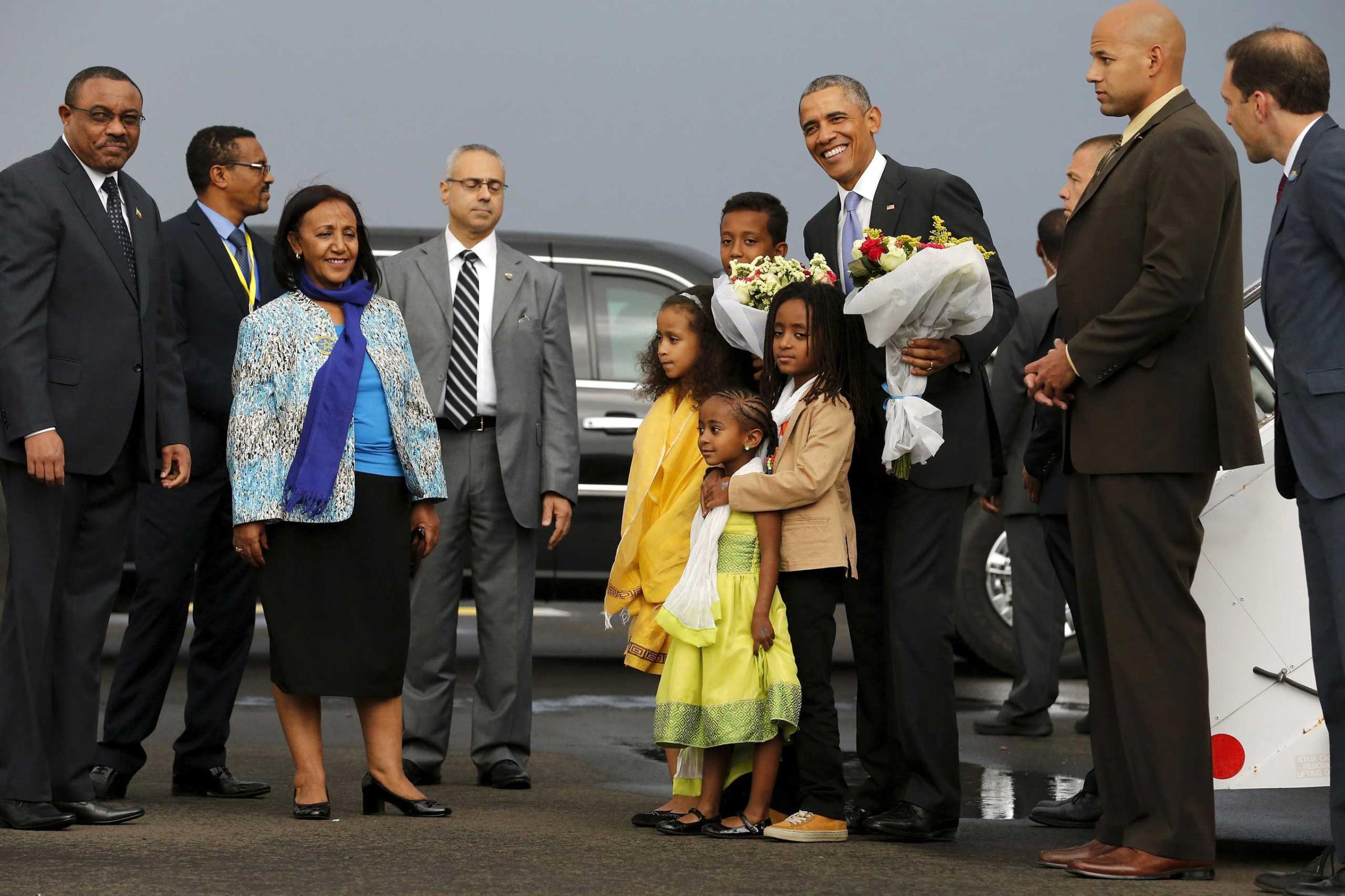
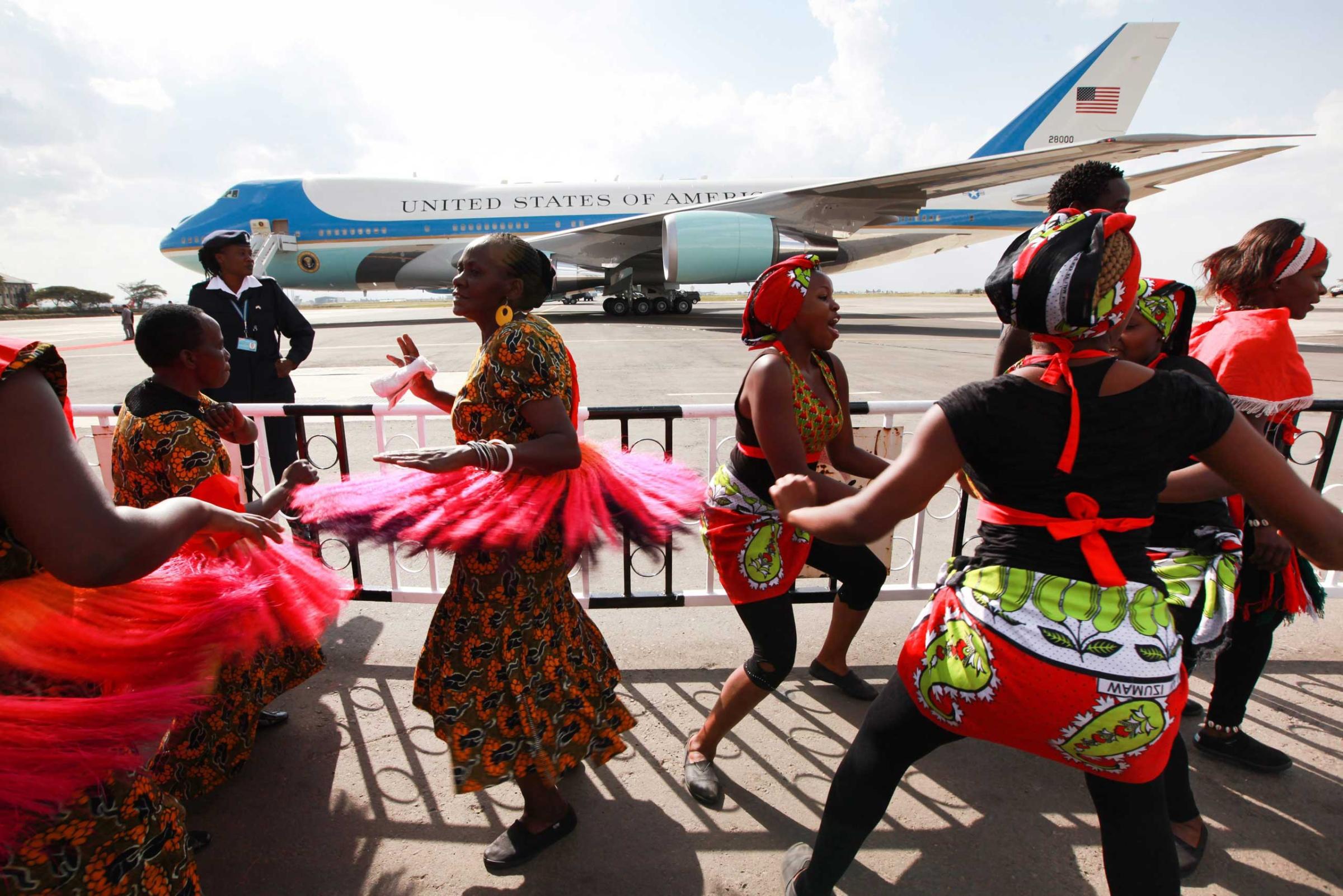
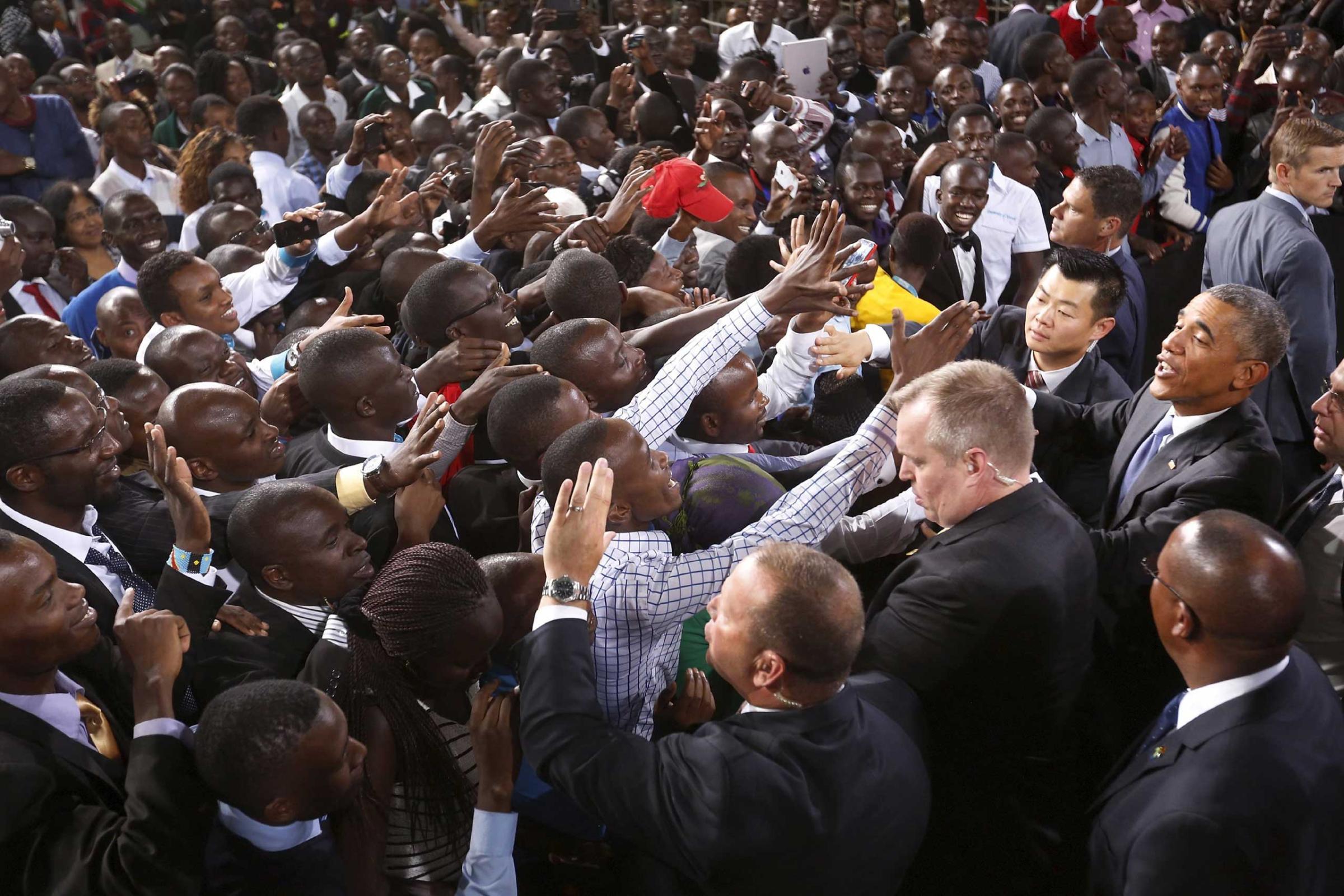
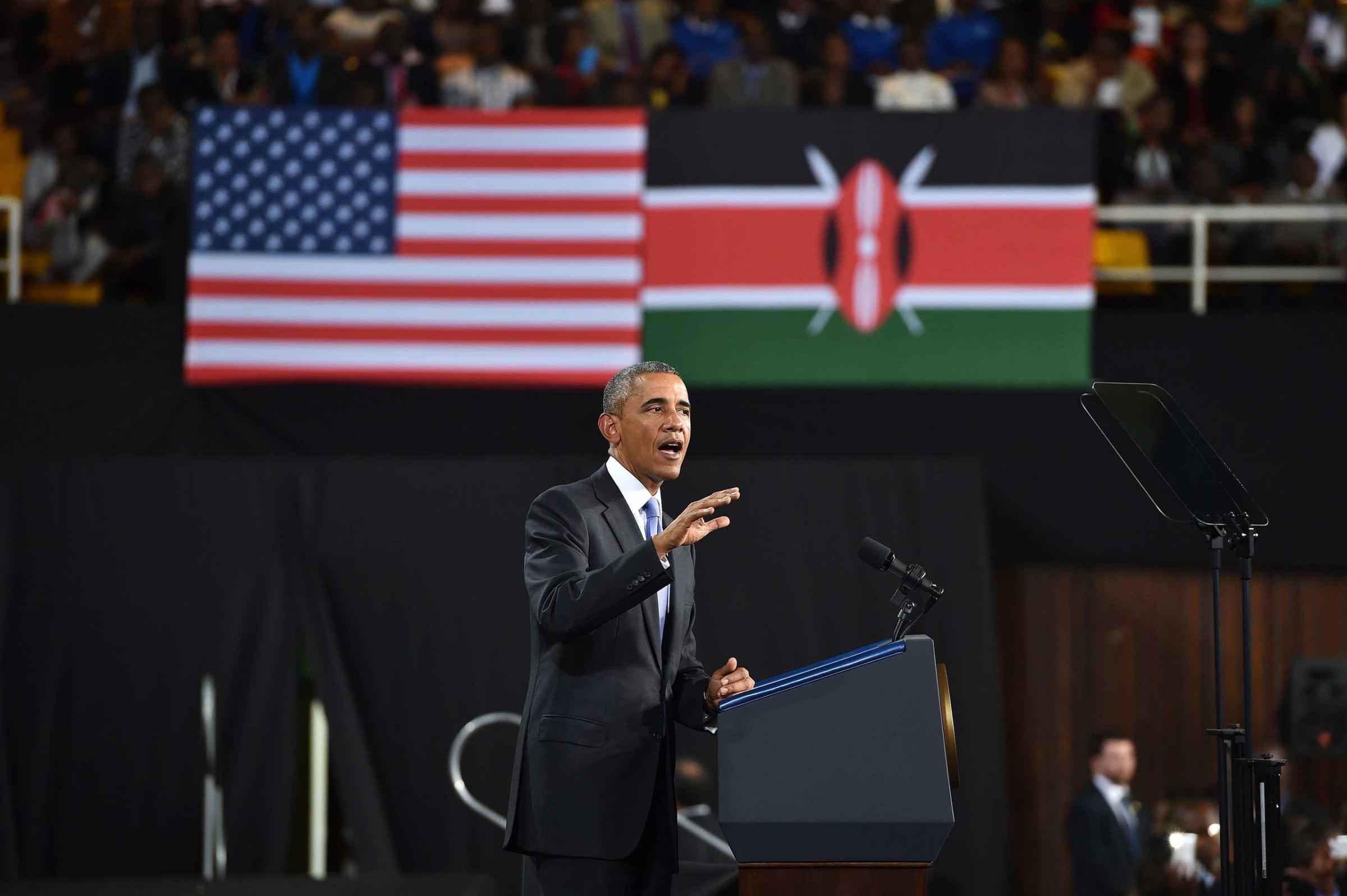

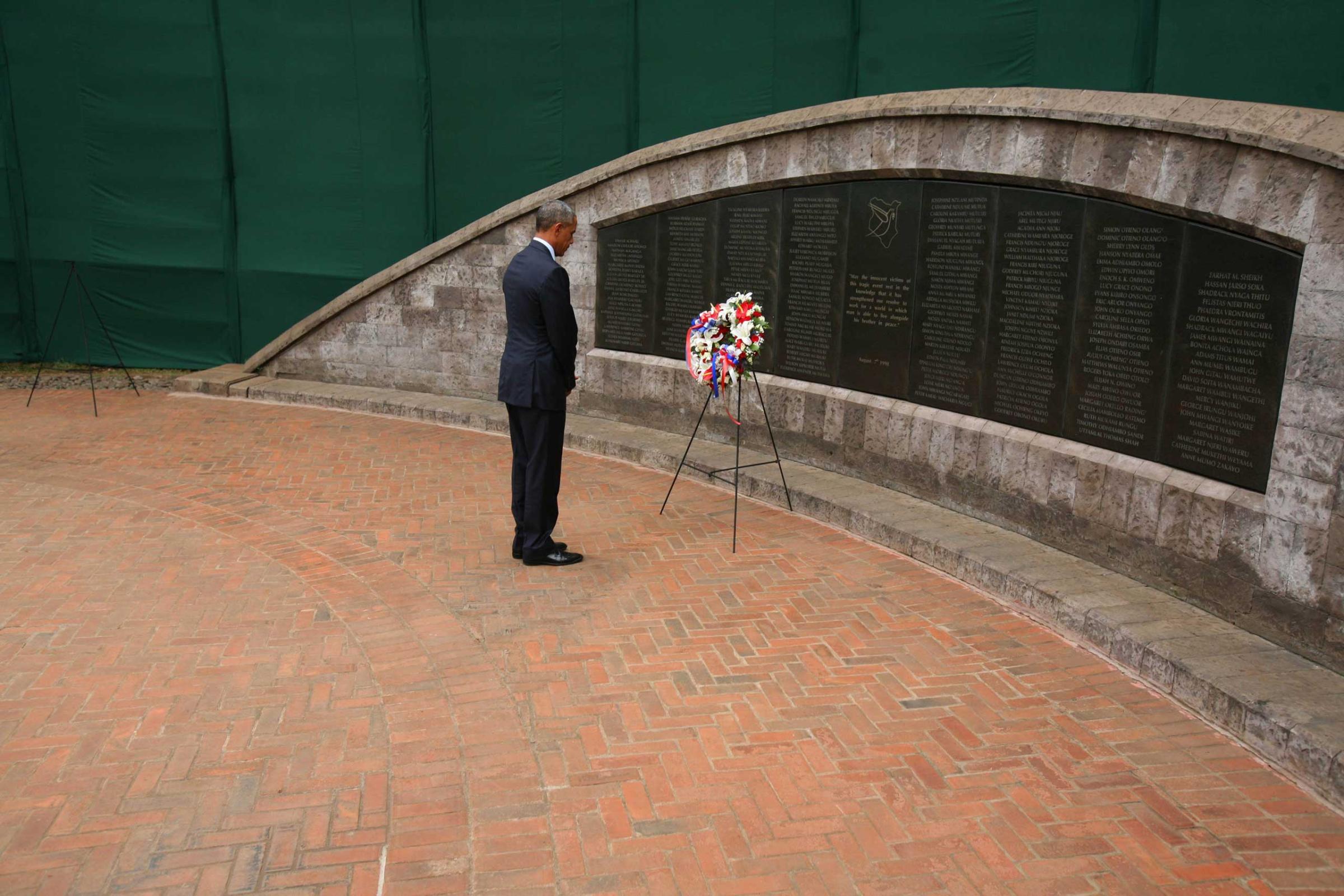
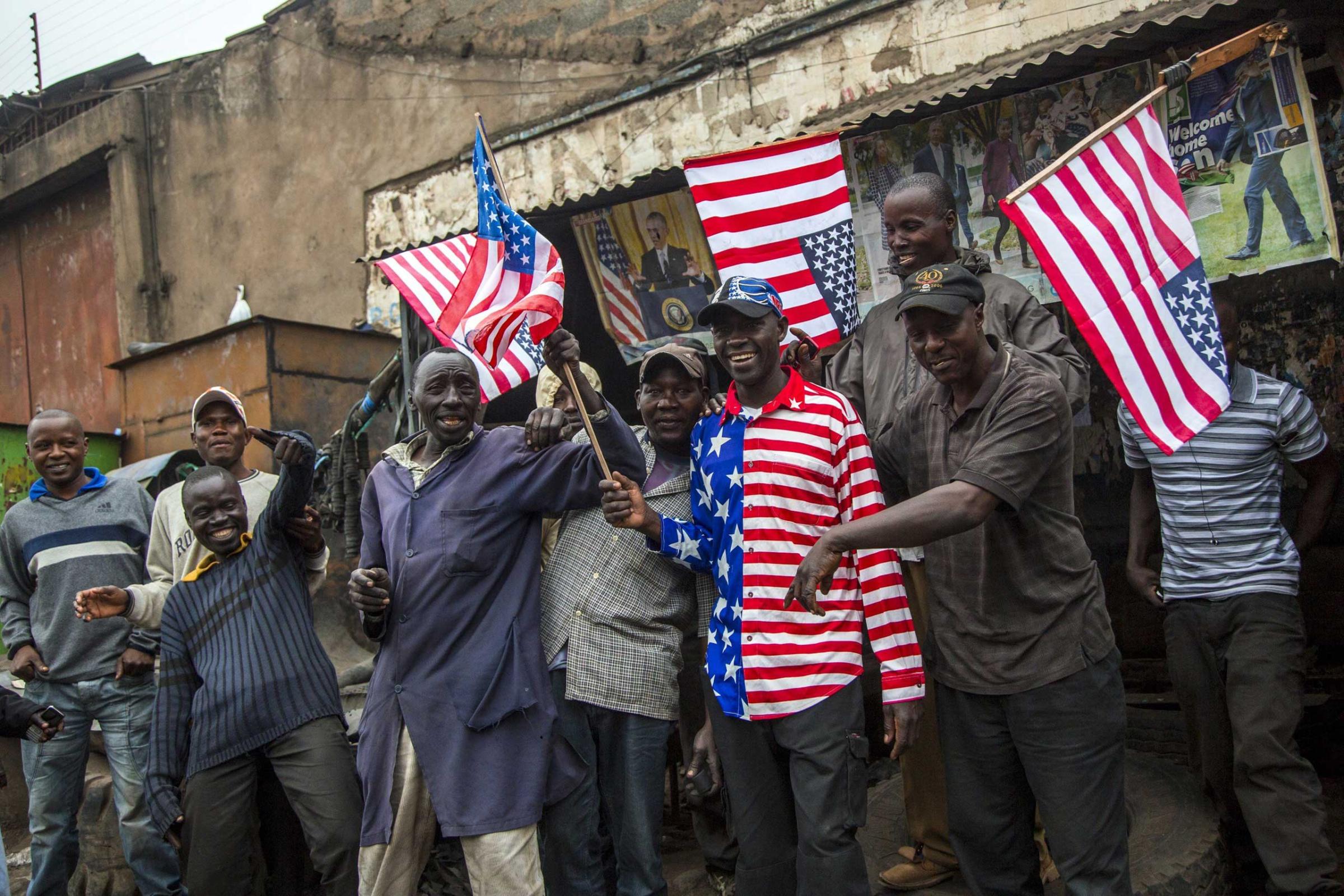
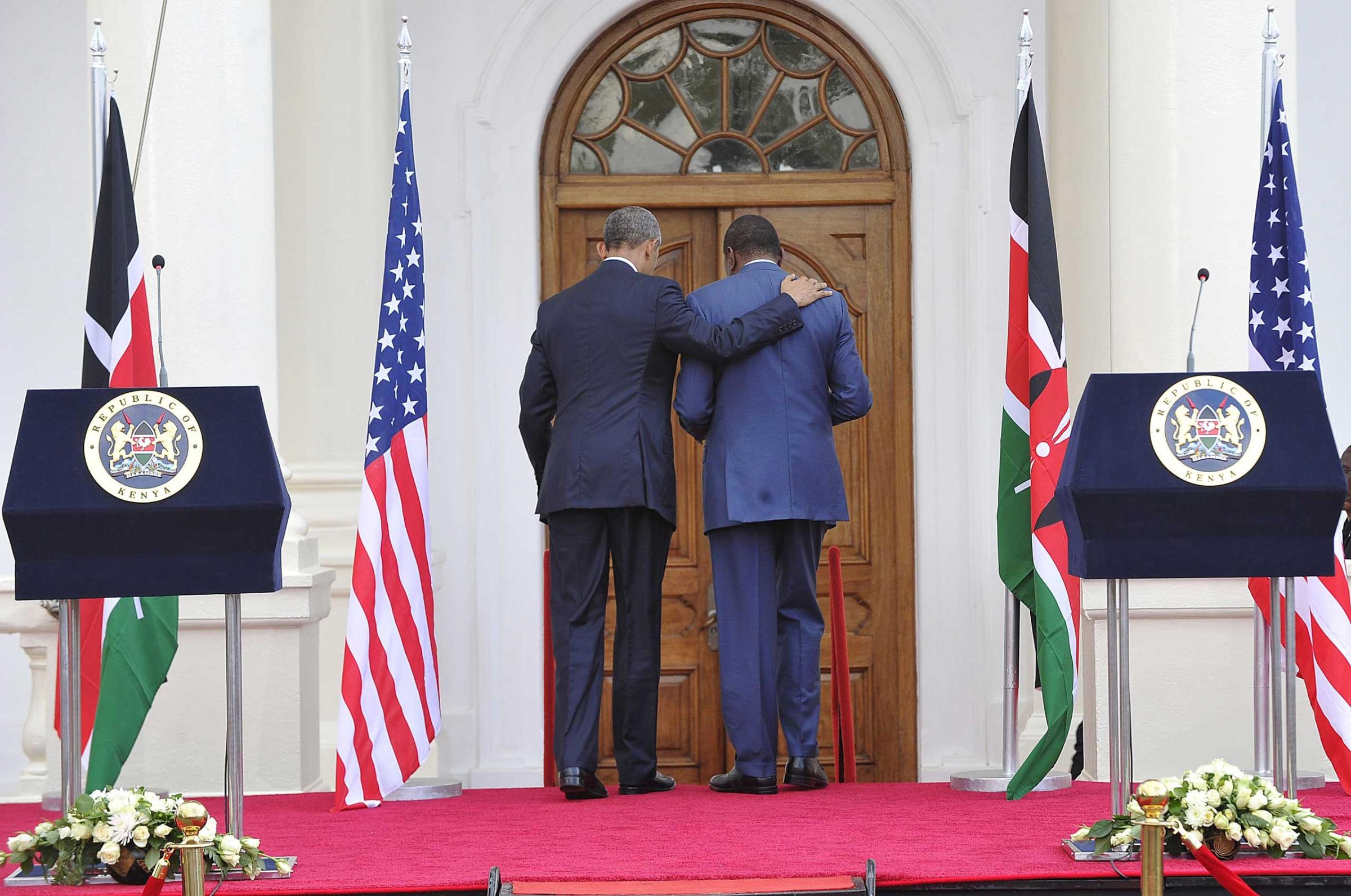
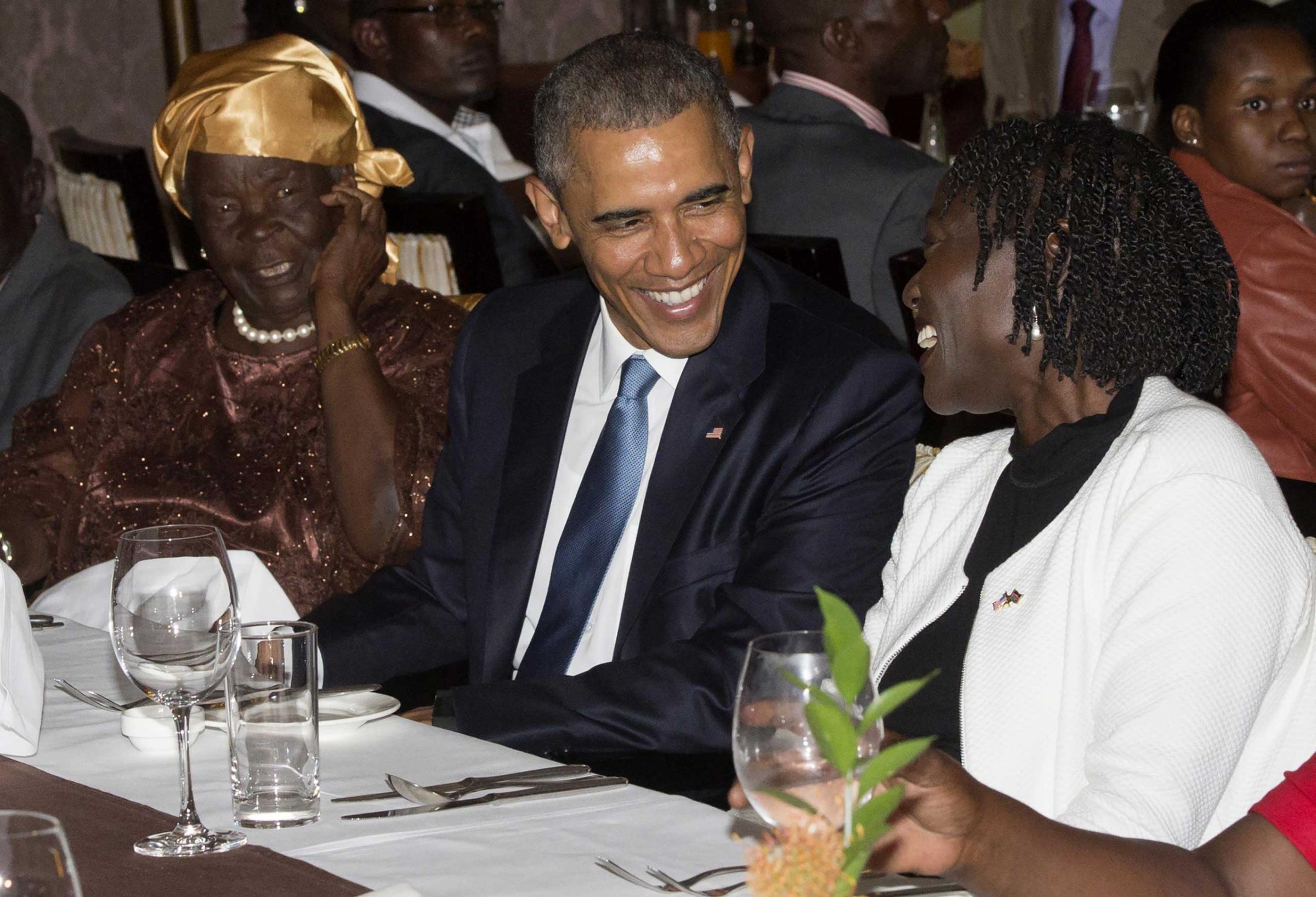
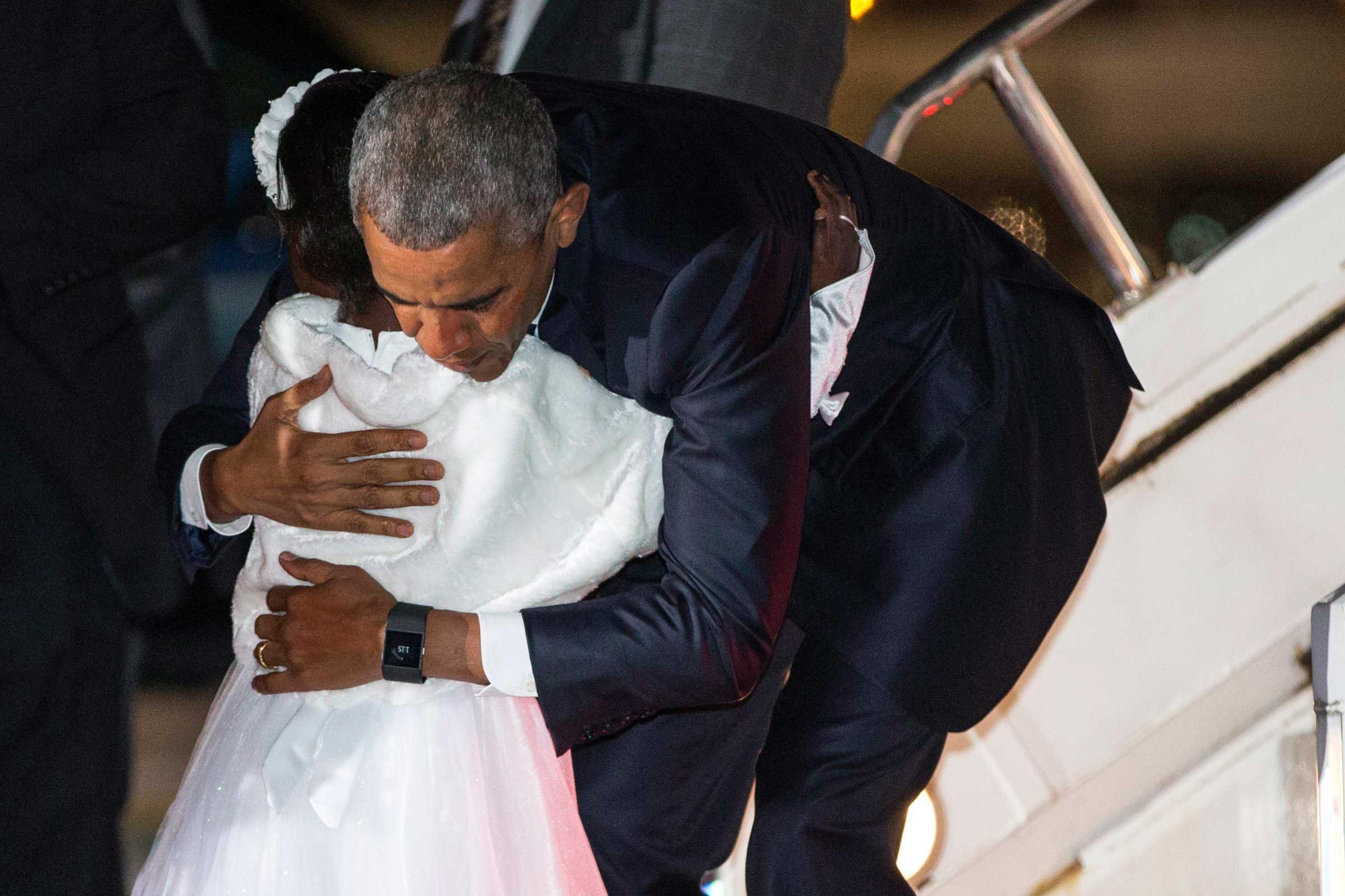

He also encouraged African leaders to respect term limits, to act more like Nelson Mandela, who stood down after his second term as President of South Africa, and not like Burundi’s President Pierre Nkurunziza, who was just elected to a constitutionally illegal third term as President amidst widespread violence. “I have to be honest with you,” Obama said in comments that appeared to go off script. “I just don’t understand this. I actually think I am a pretty good president. I think if I ran again, I could win. But I can’t. The law is the law and no one is above it, not even presidents.” Even as representatives of the dozen African countries who have some of the longest-serving leaders in the world shifted uncomfortably in their seats, the audience erupted into the wildest cheers and loudest applause of the speech.
Obama had come to Africa to meet with Kenyan and Ethiopian leaders on issues ranging from security, economic development and human rights. His speech at the A.U reflected similar themes as he attempts to cement his African legacy. He has hinted, however, that he might consider returning to Africa at the conclusion of his presidency, telling the audience, “I’m looking forward to life after being President. It means I can go take a walk, I can spend time with my family, I can find other ways to serve. I can visit Africa more often.”
The biggest challenges, however, remain unresolved and out of his reach, the damper on an otherwise successful visit. Large swaths of Africa remain in turmoil, with terror groups al-Shabaab in Somalia and Boko Haram in Nigeria continuing to take lives and disrupt progress. The ongoing civil war in South Sudan, which has seen tens of thousands killed, raped or tortured and has displaced millions, defies any attempts at resolution. “In South Sudan the joy of independence has descended into the despair of violence,” Obama lamented. On Monday he met with regional leaders in an attempt to force rival South Sudanese leaders Salva Kiir and Riek Machar to accept a peace agreement. If they do not, Obama warned, “I believe the international community must raise the costs of their intransigence,” a threat that most likely means an international arms embargo and increased sanctions.
Even on issues of human rights, Obama was met with some resistance from leaders in both Ethiopia and Kenya. When Obama publically called for an end to anti-gay discrimination in Kenya, President Uhuru Kenyatta noted that while the two countries share many values, gay rights were not among them. And in Ethiopia, Prime Minister Hailemariam Desalegn demurred on Obama’s calls for greater press freedoms by accusing journalists of acting unethically and consorting with terrorists.
Critics have complained that while Obama’s visit was full of pomp and lectures, he has delivered little in the way of the expected monetary largesse. That may be the most successful part of his visit yet. “So many Africans have told me — we don’t just want aid, we want trade that fuels our progress,” he said in his speech. They say, “’We don’t want patrons, we want partners who help us build our own capacity to grow.’” Throughout the past four days, Obama has been relentless in his calls for greater democracy, accountable governance, and rule of law, the foundations of economic growth that will do far more to deliver on Africa’s promise than any amount of aid.
More Must-Reads from TIME
- Why Trump’s Message Worked on Latino Men
- What Trump’s Win Could Mean for Housing
- The 100 Must-Read Books of 2024
- Sleep Doctors Share the 1 Tip That’s Changed Their Lives
- Column: Let’s Bring Back Romance
- What It’s Like to Have Long COVID As a Kid
- FX’s Say Nothing Is the Must-Watch Political Thriller of 2024
- Merle Bombardieri Is Helping People Make the Baby Decision
Contact us at letters@time.com